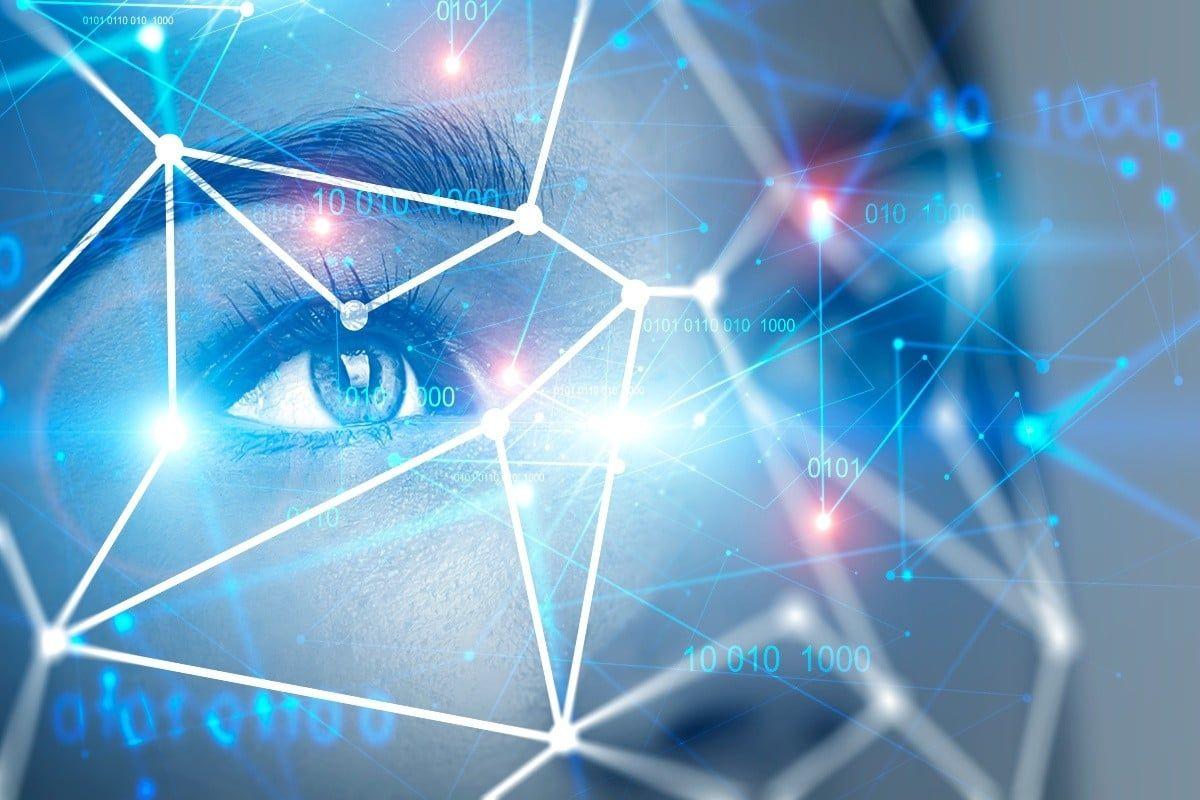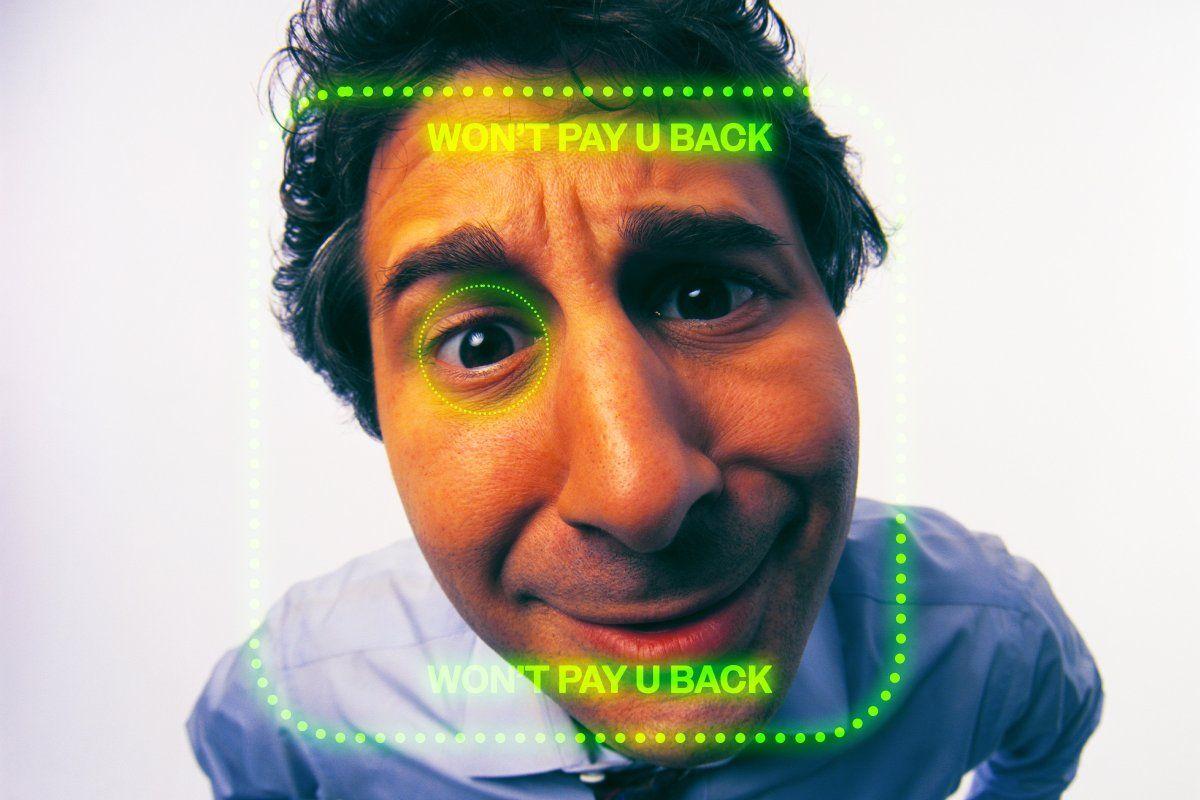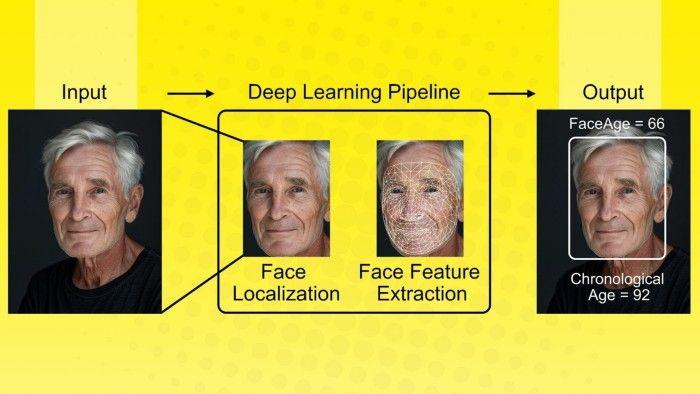AI System Can Predict Career Success by Analyzing Facial Features, Raising Ethical Concerns
3 Sources
3 Sources
[1]
Your might get rejected at your next job interview because of your face
What Happened: Imagine this: you walk into a job interview, and before you even say "hello," you're rejected. Not because of your resume, but because the computer decided it didn't like your face. It sounds like a sci-fi nightmare, but researchers at the University of Pennsylvania just took a big step toward making it real. A new study, led by Marius Guenzel, fed photos of nearly 96,000 MBA graduates into an AI. The AI's job was to scan their faces and try to guess their personality - what the researchers call the "Photo Big Five" (think: how agreeable, conscientious, or outgoing they look). Then, they checked to see if the AI's guesses matched up with the grads' real-world careers, like how much money they made or how successful they were. And here's the creepy part: it worked. The AI's snap judgments based on just a photo had real power to predict who would be successful. It turns out our faces might give off tiny clues about our personalities, and AI is getting really good at spotting them. Why Is This Important: This is a massive, and frankly, super controversial deal. We already use personality tests for jobs, but using a face scan to guess if someone's a good worker? That's a legal and ethical minefield. It feels like the exact kind of thing anti-discrimination laws were written to stop. The researchers are quick to say it's not a crystal ball, just another piece of data. But critics are (rightfully) freaking out. Most companies won't touch this kind of tech with a ten-foot pole because it's so full of potential bias and legal risks. But... if it works? And it gives a company a competitive edge? You can bet someone, somewhere, is going to be tempted to use it, no matter how creepy it feels. Why Should I Care: This isn't just a weird science experiment; this is one of those things that makes you question... well, a lot. If your face can play a role in your job prospects, what does that mean for self-improvement or hard work? Does any of that matter if an algorithm decides your "face data" isn't a good fit? It's a scary line between being judged on your merits and being judged by a computer's pre-written destiny for you. And, of course, there's the privacy of it all. The idea of companies scanning our faces to decide if we're "employable" is just a huge step toward normalizing corporate surveillance in a way that could lock even more people out of opportunities. Recommended Videos What's Next: The researchers aren't stopping at jobs. They're already testing this tech to see if it can predict whether you'll pay back a loan. The "nice" spin is that it could help people without a credit history get a loan. The terrifying flip side is, "Sorry, our algorithm analysed your face and you look like a risk. Loan denied." It's hard to say if this will ever become mainstream. Beyond the legal nightmare, there's just the human factor: Most of us still believe we deserve a fair shot, a real conversation, to prove ourselves - not just a scan of our picture. Whether AI helps that process or just replaces it is the big question for the next few years.
[2]
Scientists Say Their AI System Can Scan Your Face to Detect Whether a Company Should Hire You
If you thought your credit score was invasive, just wait until companies are judging you based on your mug alone. A new study by researchers at the University of Pennsylvania, flagged by The Economist, sought to answer the question: can AI detect trustworthy people just by analyzing their facial characteristics? It's hard to imagine why anyone would ask such a question, but here we are anyway. The research built on some other ethically dubious scholarship, which posits that personality traits can be sussed out just based on a person's facial features. Setting aside that highly problematic can of worms, the team at UPenn argues that yes, as a matter of fact, AI can accurately predict important characteristics about people based on an AI analysis of their face -- including metrics linked to financial success, like respectfulness and trust. To do it, the researchers used an AI system trained on previous scholarship about face-based personality detection to extract five personality traits -- the "soft skills" of openness, conscientiousness, extraversion, agreeableness, and neuroticism -- from the headshots of 96,000 MBA graduates collected from LinkedIn. Then they checked how the LinkedIn members' careers had actually turned out, and claim they found an association between the traits they identified from the facial scans and their success in the labor market. The implication, they say, is that machine learning techniques can find correlations between facial characteristics and real-world success. Extraversion, for example, is the "strongest positive predictor" of compensation, while openness indicates a person is unlikely to be paid well. It's a pretty horrifying thought -- an algorithm that chooses whether you get the job, secure the bank loan, or rent the car based on your face alone. But as The Economist points out, in our world where financial success takes priority over all else, corporations would have a "strong incentive" to deploy it. That is, of course, assuming they don't discriminate on grounds of protected characteristics. However, even that isn't much of a barrier in 2025, as versions of this are already bearing fruit in the real world. In the US, some states are using AI software to verify drivers licenses, with disastrous results for those living with facial differences. In the UK, the Met Police just announced they secured a record number of arrests with their AI facial-detection system, with "only" a 0.5 percent false-positive rate (which, if you think about it, is really bad.) As the UPenn researchers write, "widespread adoption of facial recognition technology in the future may motivate individuals to modify their facial images using software or even alter their actual appearance through cosmetic procedures." It's too soon to tell whether or not any overzealous tech companies decide to take this research from the university and into the real world -- but given some of the startups we've seen popping up lately, we wouldn't be shocked.
[3]
Scientists can now predict personality and success level with a selfie
TL;DR: Researchers at the University of Pennsylvania developed an AI system that analyzes facial features to predict Big Five personality traits and real-world success, based on 96,000 MBA graduates. While effective, this technology raises ethical concerns about biased hiring, lending, and insurance decisions driven by appearance-based AI assessments. Researchers at the University of Pennsylvania have devised a way to scan people's faces to estimate personality traits and real-world success, and, according to the scientists behind the method, it actually works. A new study has found that machine learning techniques can identify correlations between facial characteristics and real-world success, leading to the creation of predictors based on facial characteristics for specific aspects of life. The team used an AI system trained to estimate the likelihood of the Big Five personality traits from human face images. The researchers took headshots from 96,000 MBA college graduates and fed them into the AI. The AI produced results indicating the likelihood of each student's personality traits: neuroticism, conscientiousness, agreeableness, extraversion, and openness. The team then reviewed the AI's results and evaluated how each student's career had panned out, and found a correlation between the AI's predictions and each student's success. The real-world application of such technology could be devastating, not to mention unethical, as companies could simply adopt an AI system to screen job applications. Essentially, applicants would be judged purely on how they look by an AI system designed to estimate a person's success based on appearance. Taking that example even further, banks could adopt it to decide whether to grant a loan or even issue health insurance. "Widespread adoption of facial recognition technology in the future may motivate individuals to modify their facial images using software or even alter their actual appearance through cosmetic procedures," writes the researchers behind the study
Share
Share
Copy Link
University of Pennsylvania researchers developed an AI system that analyzes facial features to predict personality traits and career success, testing it on 96,000 MBA graduates with concerning implications for hiring and lending practices.
Revolutionary AI Research Predicts Success Through Facial Analysis
Researchers at the University of Pennsylvania have developed a groundbreaking AI system capable of predicting personality traits and career success by analyzing facial features alone. The study, led by Marius Guenzel, represents a significant advancement in facial recognition technology that could fundamentally alter how companies evaluate potential employees and customers
1
.
Source: TweakTown
The research team fed photographs of nearly 96,000 MBA graduates into their AI system, training it to identify what they termed the "Photo Big Five" personality traits: openness, conscientiousness, extraversion, agreeableness, and neuroticism. The AI analyzed facial characteristics to predict these soft skills, then researchers compared the predictions against the graduates' actual career outcomes, including compensation levels and professional success
2
.Methodology and Findings
The study utilized headshots collected from LinkedIn profiles of MBA graduates, processing them through machine learning algorithms trained on previous scholarship about face-based personality detection. The AI system demonstrated remarkable accuracy in correlating facial features with real-world success metrics
3
.According to the researchers' findings, extraversion emerged as the strongest positive predictor of compensation, while openness indicated lower earning potential. The AI's snap judgments based solely on photographs showed significant predictive power for determining who would achieve career success, suggesting that facial features may reveal subtle personality indicators that correlate with professional performance
1
.Ethical Implications and Legal Concerns
The technology raises profound ethical questions about discrimination and fairness in employment practices. Critics argue that using facial analysis for hiring decisions could violate anti-discrimination laws and perpetuate existing biases in the workplace. The system essentially enables companies to make employment decisions based on appearance rather than qualifications or merit
2
.
Source: Futurism
Legal experts express concern that such technology could create new forms of discrimination that are difficult to detect and challenge. Unlike traditional personality tests that rely on self-reported responses, facial analysis operates without the subject's knowledge or consent, raising significant privacy concerns about corporate surveillance
1
.Related Stories
Real-World Applications and Risks
Beyond employment screening, the researchers are exploring applications in financial services, testing whether the technology can predict loan repayment likelihood. While proponents suggest this could help individuals without credit histories access financial services, critics warn of potential discrimination in lending practices based purely on facial characteristics
1
.Similar technologies are already being deployed in various contexts. Some U.S. states use AI software for driver's license verification, with problematic results for individuals with facial differences. The UK's Metropolitan Police reported record arrests using AI facial-detection systems, though with a concerning 0.5 percent false-positive rate
2
.Societal Impact and Future Implications
The widespread adoption of such technology could fundamentally alter social dynamics and individual behavior. Researchers noted that facial recognition technology might motivate people to modify their appearance through software manipulation or cosmetic procedures to improve their algorithmic assessments
3
.This development challenges traditional notions of merit-based evaluation and raises questions about the role of physical appearance in determining life opportunities. The technology could potentially lock individuals out of employment, financial services, or other opportunities based on algorithmic interpretations of their facial features rather than their actual capabilities or character
1
.References
Summarized by
Navi
[1]
[2]
Related Stories
AI's Growing Influence in HR: Managers Turn to AI for Critical Personnel Decisions
02 Jul 2025•Business and Economy

AI-Powered Job Interviews Spark Controversy and Reshape Hiring Landscape
04 Aug 2025•Technology

AI Tool 'FaceAge' Predicts Biological Age and Cancer Outcomes from Facial Photos
09 May 2025•Science and Research

Recent Highlights
1
Pentagon threatens to cut Anthropic's $200M contract over AI safety restrictions in military ops
Policy and Regulation

2
ByteDance's Seedance 2.0 AI video generator triggers copyright infringement battle with Hollywood
Policy and Regulation

3
OpenAI closes in on $100 billion funding round with $850 billion valuation as spending plans shift
Business and Economy





